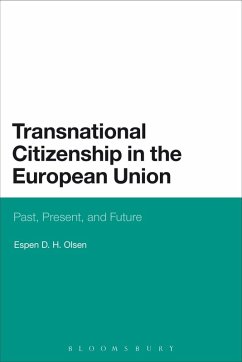This book argues that European citizenship is transnational, a status that has emerged incrementally during the European integration process.
Transnational Citizenship in the European Union follows an institutionalist approach and traces the development of citizenship discourse from the founding treaties of the EU to the most recent effort of constitution-making and the Lisbon Treaty. This helps demonstrate that such discourse has followed a path based on the foundational principles of free movement and non-discrimination rather than revolutionary ideas of a postnational citizenship beyond the nation-state.
This in-depth analysis of citizenship in the EU takes into account the institutional configuration of membership, rights, identity, and participation. It also brings in the domestic level of the debate through the examination of national positions on reform proposals and the interplay between EU and member states conceptions of citizenship.
Lastly, by investigating citizenship practices, the book helps foster understanding of how the EU works as a political system, and the relationship between European institutions and the recipients of their integrative politics , i.e., the citizens.
Transnational Citizenship in the European Union follows an institutionalist approach and traces the development of citizenship discourse from the founding treaties of the EU to the most recent effort of constitution-making and the Lisbon Treaty. This helps demonstrate that such discourse has followed a path based on the foundational principles of free movement and non-discrimination rather than revolutionary ideas of a postnational citizenship beyond the nation-state.
This in-depth analysis of citizenship in the EU takes into account the institutional configuration of membership, rights, identity, and participation. It also brings in the domestic level of the debate through the examination of national positions on reform proposals and the interplay between EU and member states conceptions of citizenship.
Lastly, by investigating citizenship practices, the book helps foster understanding of how the EU works as a political system, and the relationship between European institutions and the recipients of their integrative politics , i.e., the citizens.









